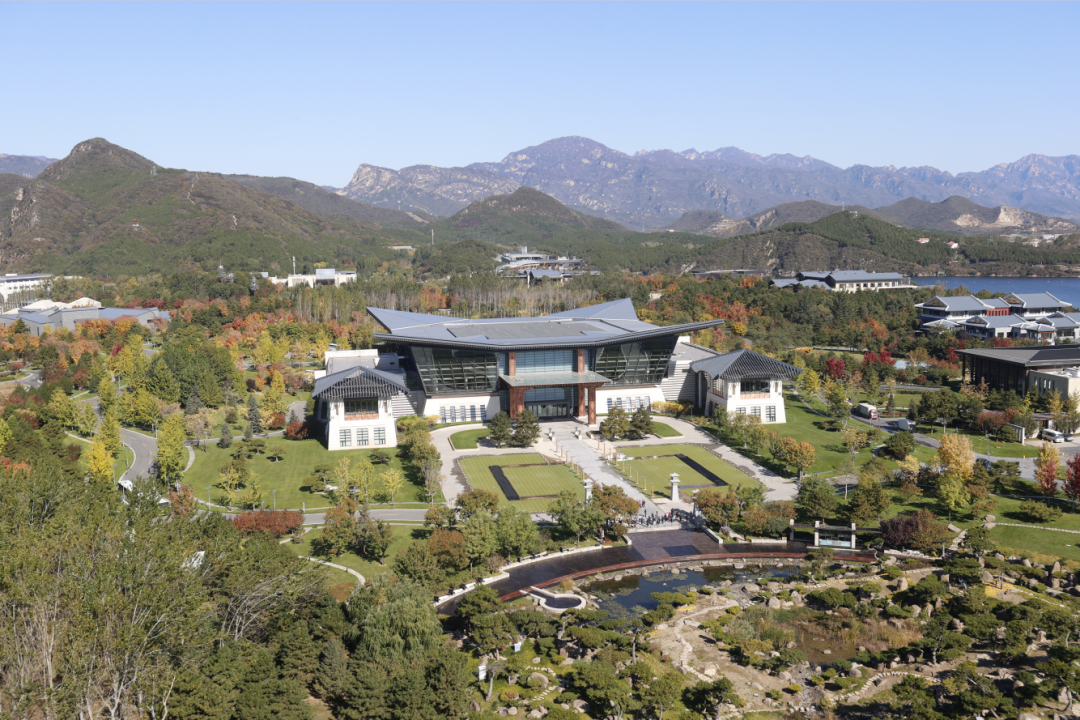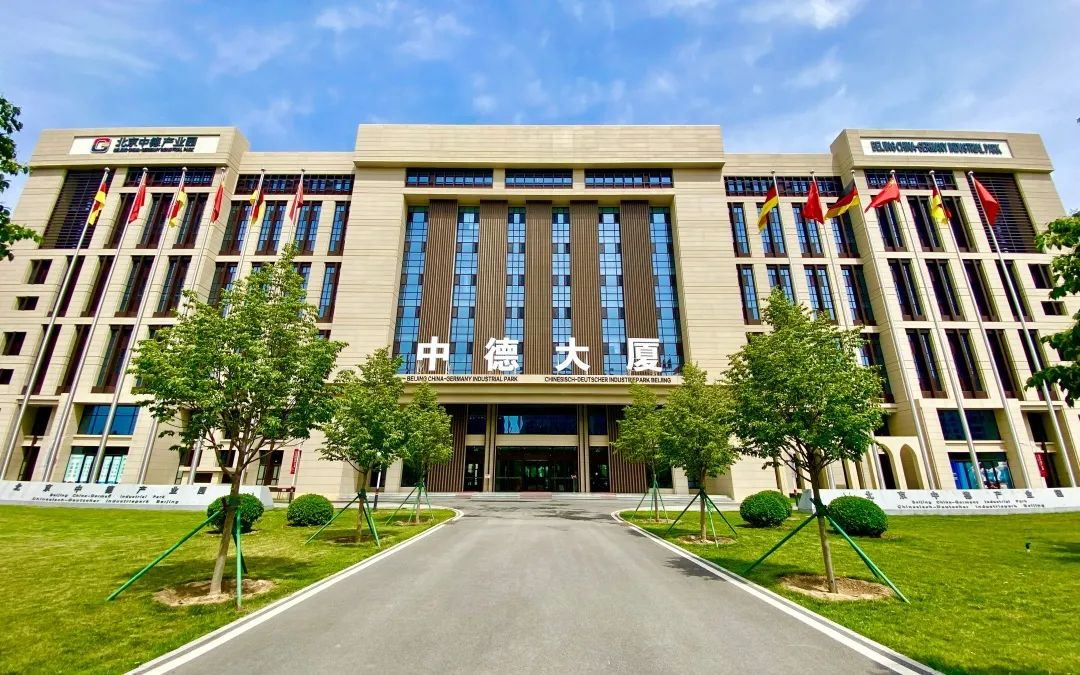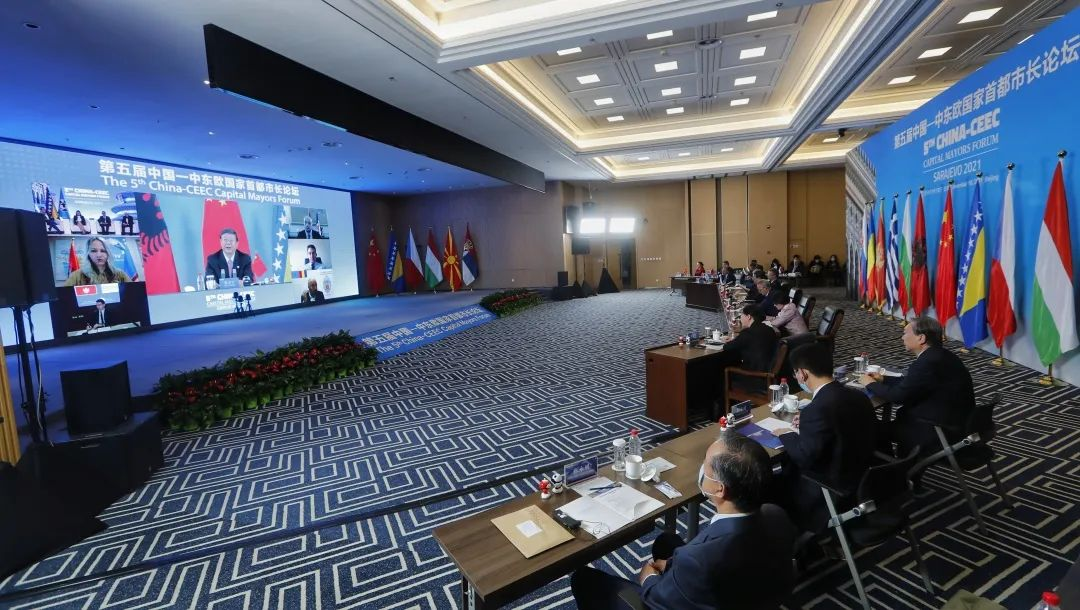Since the 12th Beijing Municipal Congress of the Communist Party of China, under the overarching goal of pursuing greater development as the national capital, Beijing has pooled resources and delivered new progress in becoming the center for international exchanges. In the past five years, Beijing strengthened its capacity to provide logistic support to diplomatic events. The city received more than 100 foreign heads of state and government and more than 700 delegations led by foreign party and state leaders, totaling over 9,000 people. Beijing also organized nearly 900 visits, inspections, and other activities, contributing its efforts to serving China's diplomacy as a major country in the new era and to building a community with a shared future for mankind.
Beijing provided logistic support for more than 10 major diplomatic events held in China, including two Belt and Road Forums for International Cooperation, the Beijing Summit of the Forum on China-Africa Cooperation, the Beijing International Horticultural Expo, the Conference on Dialogue of Asian Civilizations, and the CPC in Dialogue with World Political Parties High-Level Meeting. During the Beijing Winter Olympics when foreign leaders gathered in Beijing, the city did a good job in epidemic prevention, guest reception, transportation and urban operation, making a new breakthrough in providing logistic support for major diplomatic events under the closed-loop model.

Yanqi Lake International Conference Resort
Meanwhile, major facilities in Beijing witnessed a rapid improvement in their capacity to serve international exchanges. The Beijing Yanqi Lake International Conference Resort is under major construction, the Yanbai Manor was completed and put into use, and the Qihu section started construction; the main body of phase II of the China National Convention Center was completed, phase II and phase III of China International Exhibition Center (new venue) have started, and the site selection research for the Beijing Daxing International Airport Convention and Exhibition Center was completed; Beijing Daxing International Airport was opened, and the first fifth-freedom international air cargo route was launched; Universal Beijing Resort was opened, and the construction of the three cultural landmarks, namely the theater, library, and museum of the Beijing Municipal Administrative Center (BMC) are in steady progress.
Over the past five years, by fully leveraging favorable policies of the "Two Zones", Beijing explored approaches with distinct Chinese features to open up key industrial parks, and created new industrial clusters for international cooperation. During this period, the China-Germany Industrial Park was officially opened. As the first national-level industrial park focusing on economic and technological cooperation between China and Germany, it has attracted more than 70 German-funded enterprises with a total annual output of over 30 billion yuan. The China-Japan Innovation and Cooperation Demonstration Zone was approved and established with a focus on healthcare, advanced manufacturing, and the digital economy. A total of 45 foreign-invested enterprises have settled in the Park, and 63 projects in high-end, precision, and sophisticated industries have been implemented.

China-Germany Industrial Park
In recent years, Beijing has made great efforts to create a world-class business environment attracting top multinational companies such as Seragon and LafargeHolcim to set up their regional headquarters in the city. At present, Beijing hosts around 50,000 foreign companies and the regional headquarters of 207 multinational companies. The three largest international rating agencies, Moody's, S&P, and Fitch, as well as two major bank card clearing agencies, Mastercard and Visa, are also operating in Beijing. Deloitte is building the Deloitte University in the city. BMW China Investment, Daimler Truck China, and about 300 other projects have been implemented in Beijing.

The 5th China-CEEC Capital Mayors Forum
In order to build a multi-layered platform for international exchanges, Beijing also implemented a work plan on international sister cities. The total number of its municipal-level and district-level sister cities has reached 245. Institutionalized platforms for international exchanges such as the Beijing-Seoul joint committee and the China-CEEC Capital Mayors Forum have been gradually improved, and a number of flagship programs such as Beijing Week, Beijing Day, and Beijing Night have been launched. At the same time, Beijing has advanced people-to-people exchanges, delivering influential events such as the Beijing International Academic Season, the get-together of Chinese and foreign families on the International Day of Families, and the Beijing Sister City Youth Camp.
Since the outbreak of COVID-19, Beijing has not let its foreign affairs be impeded by the pandemic. Rather, it continued international exchanges by shifting online. In addition, Beijing coordinated municipal, district-level, and civil channels to donate supplies to 57 cities and regions in 29 countries and carried out international anti-COVID cooperation.
In the next five years, Beijing will continue to improve the logistic service mechanism for the head-of-state diplomatic events, create new venues for high-level diplomatic and foreign affairs events, and do a good job in receiving foreign heads of state. It will also improve the logistics service mechanism for major national events and optimize the pandemic prevention work plan for major national events to ensure that such events are held in accordance with regular pandemic prevention and control measures. At the same time, Beijing will create distinctive functional zones for international exchanges, strengthen high-capacity international exchange platforms, attract high-end international resources, and provide a high-quality international environment and services.
(Reporter: Li Ning)
(Photo sources: Beijing Daily, China-Germany Industrial Park)


